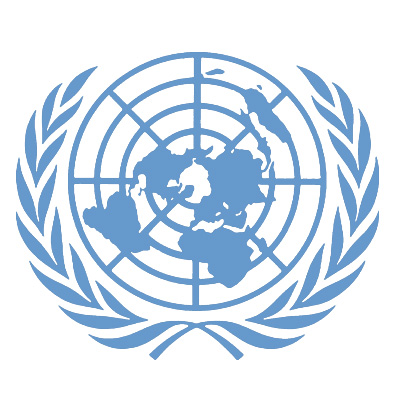 Students filled the Blaustein lecture hall on Friday as government professors Tristan Borer and William Rose, and economics professor Maria Cruz-Saco discussed aspects of the United Nations to celebrate Sunday, the annual UN Day.
Students filled the Blaustein lecture hall on Friday as government professors Tristan Borer and William Rose, and economics professor Maria Cruz-Saco discussed aspects of the United Nations to celebrate Sunday, the annual UN Day.
The efficiency and purpose of the UN has recently come into question, specifically in light of the troubling discovery that United Nations peacekeeping troops on the ground in the Democratic Republic of the Congo (DRC) failed to prevent the mass rape of women in a nearby village.
Professor Rose began the discussion with a description of the challenges the UN faces when handling peacekeeping operations during civil wars. The original intention of the UN, formed in 1945 after World War II, was to aid in situations of conflict between countries, which worked well until the climate of conflict changed to a more intra-state nature. In turn, the notion of peacekeeping also to evolve.
“Peacekeeping has a mixed record,” Rose said, citing pessimism towards UN operations, specifically in the contexts of Somalia, Rwanda and Bosnia failures. Despite the fact that the United Nations has elicited more success stories than failures, the failures are what the media propagates, and thus are what resonate more with the public.
Professor Borer elaborated on the theme of UN inefficiency in her discussion of the UN Security Council. The Security Council, one of six principle bodies under the United Nations, is in charge of the establishment of peacekeeping missions, among other things. It is comprised of 15 member states, five of which are permanent members with the power of the veto. This group, nicknamed the P5, are France, China, Russia, the United Kingdom and the United States.
“The most undemocratic part of the UN is the veto power of those five states,” Borer said.
Many countries, mainly Germany, Japan, Brazil and India, charge the Security Council with being “Eurocentric” and not representative of world-wide interests. In fact, over 100 countries worldwide have never sat on the Security Council. For any of these countries to become permanent members, all of the P5 must agree – if any one of the P5 uses a veto, the matter is immediately declined. This veto power has massive implications for a country like Japan, whose request for membership is likely to be vetoed by China, regardless of how legitimate Japan’s claims to membership may be.
Borer concluded by stating that the current status of reform of the Security Council remains in a deadlock because of the above complications. She mentioned that the overall attitude of the international community is to postpone the major decisions, such as Security Council reform, for the future.
To this, the entire lecture hall chuckled, insinuating that the likelihood of reform in the near future is low. Professor of Government David Patton called from the audience, “Don’t hold your breath!”
Professor Cruz-Saco closed the Common Hour with a discussion on how to promote social empowerment and inclusion abroad, based on her own experiences working with the United Nations. She said that the UN has a very comprehensive approach when dealing with these problems, but has trouble enforcing policies in the world of sovereign states. Those who disobey human rights treaties often face no more than moral authoritative consequences from the United Nations.
Cruz-Saco also mentioned that the organization is burdened by the task of housing so many powers under one umbrella. “I would like to see it become a more efficient institution,” she said.
Much of the time allotted for the Common Hour was used to answer an abundance of questions from the audience, which ultimately spotlighted the topic of whether the United Nations’ legitimacy and popularity are on the rise or decline. The panelists unanimously agreed that the UN is a necessary body, but needs to improve several major systems if it wants to gain and hold legitimacy in the future.
“Believe it or not, the United Nations is much more respected outside the United States than inside,” said Cruz-Saco.
Jacqueline Fulgham ’14 attested to this. She has lived in many countries throughout her life, including Jordan, where she witnessed the United Nations provide aid to many refugees in camps. She asserted, however, that for the UN to thrive, it must strive to gain authority everywhere.
“Keeping legitimacy is important so that the UN doesn’t become obsolete,” she said. “It needs legitimacy to enforce policy.”
Echoing this sentiment was Teddy Fisher ’12. “Clearly the UN is a dynamic organization that does a lot of things right,” he said. “The biggest challenge is that the UN faces a large credibility issue, especially in the United States.”
Professor Borer outlined one of the largest problems with the United Nations: “The UN is successful at mopping up what states haven’t done,” she said, referring to a lack of political will in the international community to cooperate on solving humanitarian problems, instead of simply throwing money at them. Nevertheless, she added, “if you were to ask a refugee in a camp how helpful it was to get food from the World Food Programme, they will say, ‘Yes, the United Nations is helping us.’”
Photo from web.









